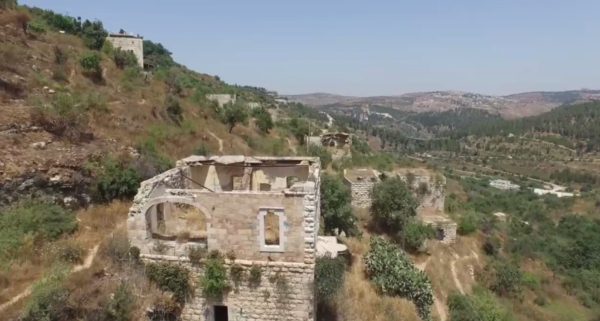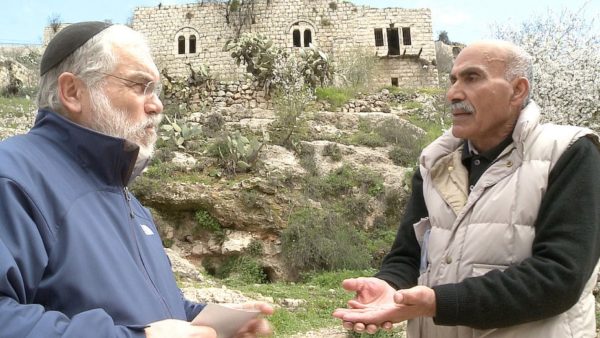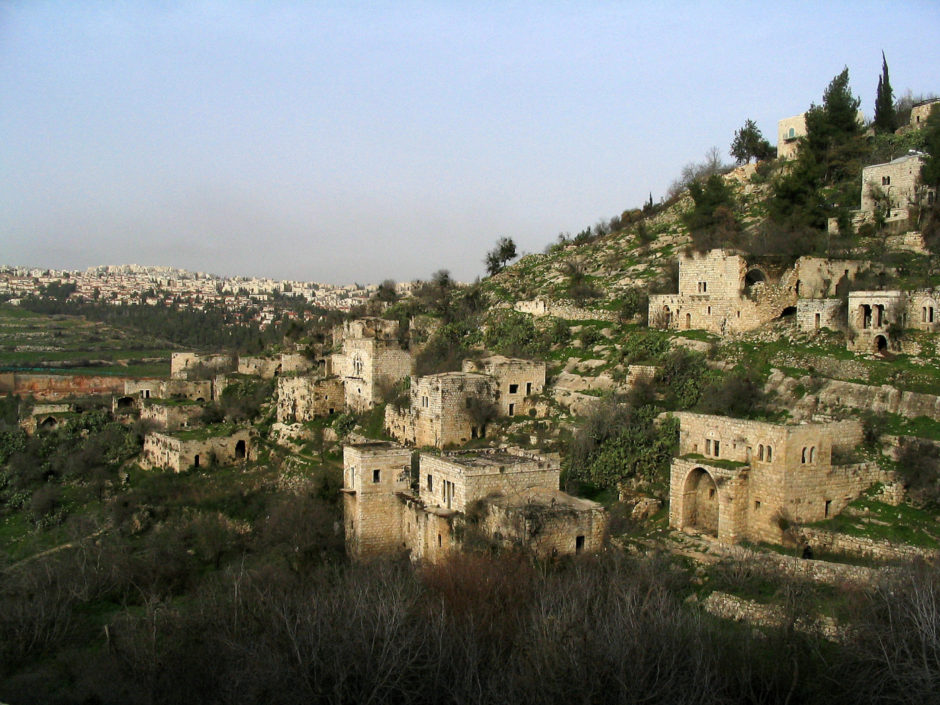The village of Lifta spreads out on the slopes of a steep hill adjacent to the Tel Aviv-Jerusalem highway, which leads directly into the western half of Israel’s capital city. It’s a unique place — the only Palestinian locality abandoned by its residents during the first Arab-Israeli war that was not destroyed by Israel or repopulated by Jews. Its empty stone buildings bear silent witness to the century-long struggle between Jews and Palestinian Arabs.
On the eve of the 1948 war, Lifta’s population of 2,500 consisted almost entirely of Muslims, with a sprinkling of Christians. Many were farmers who marketed their produce in Jerusalem. Strategically located, Lifta was attacked by Jewish forces and conquered by Lehi — a militia aligned with the right-wing Herut movement — on March 5, 1948. By then, the Arab population had fled, replicating a situation that occurred in hundreds of Palestinian villages throughout the country.

The Ruins of Lifta, which will be screened at the Toronto Jewish Film Festival on May 10, is directed by Menachem Daum and Oren Rudavsky. The film explores the fate of Lifta through the eyes of two completely different people: Daum, an Orthodox Jew from Brooklyn whose parents are Holocaust survivors, and Yacoub Odeh, a Palestinian who was born in Lifta and now lives in East Jerusalem.
Odeh heads a coalition of Arabs and Jews who hope to save Lifta from the wrecker’s ball. An Israeli real estate developer wants to demolish its last remaining buildings and build a high-end residential neighbourhood there. It isn’t clear what Odeh has in mind for Lifta’s future, but he believes its former inhabitants have a right to return. In the meantime, there is talk of converting Lifta into a center of Arab-Jewish reconciliation.
Daum, a member of the coalition, seeks to heal Arab-Jewish wounds. But as he readily admits, his very presence in the coalition is remarkable. Raised in an insular and ethnocentric family from Poland suspicious of Arabs and mistrustful of all other gentiles, Daum was forced to alter his facile assumptions about Poles and Arabs after meeting them on a first-hand basis.
In Poland, Daum let go of his anti-Polish prejudices after learning that Poles had saved members of his family during the Nazi occupation and that other Poles had dedicated themselves to repairing Jewish cemeteries after the war. In Israel, Daum made the acquaintance of Odeh, who personalized the tragic displacement of Palestinians from their homes and properties. “We have roots,” Odeh says plaintively, wondering why Palestinians were made to pay such a heavy price for the Holocaust. “We didn’t fall from the moon.”
As Daum examines this complex issue in greater depth, he speaks to a wide range of people. They run the gamut from his Polish-born uncle, Mayer Yosef, who fought with Lehi, to Benny Morris, an Israeli historian who has written extensively on the 1948 war. Daum also interviews Lifta villagers who moved to the West Bank, as well as an Israeli proponent of the Lifta development project.

As the film unfolds, a mixed picture of Lifta emerges.
Daum’s uncle’s daughter claims that Arabs from Lifta shot at passing cars during the Mandate period in Palestine. Former Lifta residents now living in Ramallah say they forged good relations with Jews and rejected violence. A Jewish advocate of the proposed real estate development argues that if Lifta is preserved, Palestinians will clamor for much more, including Tel Aviv.
Digging deeper, Daum wonders whether he has a distorted image of Arabs, mirroring his once antagonistic view of Poles. He engages a small group of Israeli teens in conversation and discovers that they hold stereotypical views of Arabs. He concludes that young Israelis can make peace with their Palestinian counterparts only if they learn their history.
Doubts creep into his mind when he asks himself whether he’s crossed an imaginary line and begun to favor the Palestinian narrative over the Jewish one.
At first glance, Odeh sounds like a reasonable person, but he soon reveals himself as something of a maximalist, calling for the right of return of Palestinians to their former homes in what is now Israel. Strangely enough, Daum never asks him the obvious question: Do you accept Israel’s existence?
Daum introduces Odeh to Dasha Rittenberg, a Polish Holocaust survivor from New York City, and they engage in a testy conversation about Israel before she tenderly says, “I feel your hurt.”
To his disappointment, Daum learns he cannot form a genuine personal bond with Odeh. The bitter politics of the Arab-Israeli dispute precludes such friendships. Ruins of Lifta, a sensitively conceived and intricately constructed documentary, makes that abundantly clear.
